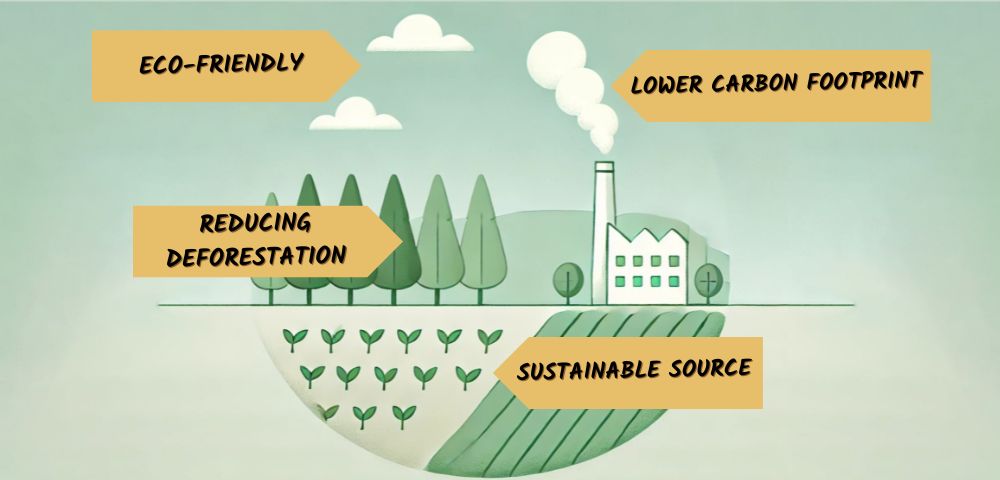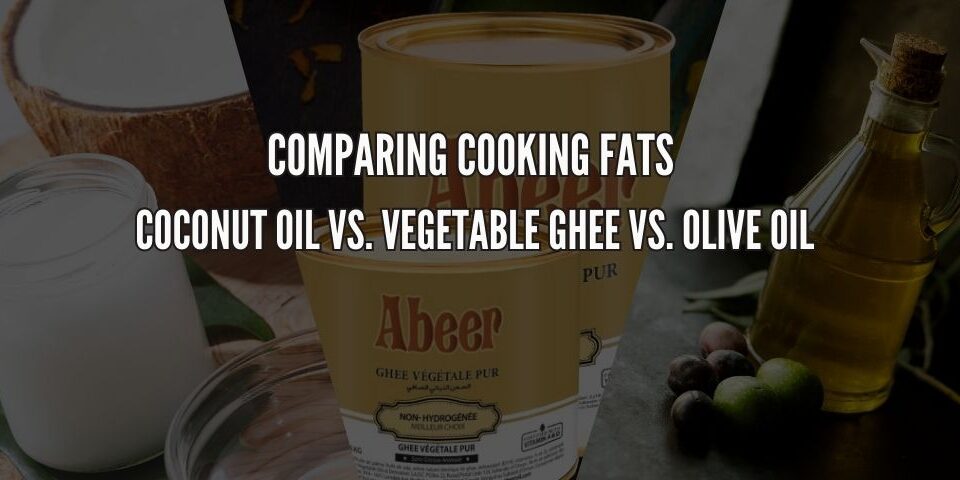
Vegetable Ghee FAQ: Everything You Need to Know
January 6, 2025
Is Vegetable Ghee Vegan? Everything You Need to Know
January 27, 2025The Environmental Impact of Using Vegetable Ghee: A Sustainable Choice

In today’s world, more and more consumers are turning to eco-friendly options when it comes to food, aiming to reduce their carbon footprint and contribute to a more sustainable future. When it comes to cooking fats, vegetable ghee offers an environmentally conscious alternative that stands out for its sustainability. But how does it compare to other cooking oils in terms of environmental impact? Let’s explore the sustainability of vegetable ghee and how making this choice can have positive effects on our planet.
The Origins of Vegetable Ghee: A Sustainable Source
Vegetable ghee is derived from plant-based oils, typically sourced from vegetables like palm, sunflower, and soybean. This makes it a sustainable alternative to animal-based fats like butter ghee, which require livestock farming that contributes significantly to greenhouse gas emissions and deforestation. Unlike animal-derived ghee, vegetable ghee is generally produced with fewer negative impacts on the environment. With sustainable sourcing practices, vegetable ghee can be part of a more eco-friendly kitchen.
The process of producing vegetable ghee also tends to be less resource-intensive compared to traditional animal-based ghee. Plant-based oils require fewer natural resources and cause less land degradation, especially when sourced from sustainable farming practices. By choosing vegetable ghee over butter ghee, you can help reduce the strain on the environment and support more eco-conscious agriculture.
Lower Carbon Footprint
When it comes to the carbon footprint, vegetable ghee generally has a smaller impact compared to animal fats. According to research by the Food and Agriculture Organization (FAO), the production of plant-based fats results in significantly fewer greenhouse gas emissions than raising livestock for butter or other animal-based products. This makes vegetable ghee a more environmentally friendly option in terms of carbon emissions.
Moreover, sustainable palm oil is often used in the production of vegetable ghee, which can help mitigate environmental damage. Palm oil that is certified by organizations like the Roundtable on Sustainable Palm Oil (RSPO) is grown using responsible farming techniques that reduce deforestation and habitat destruction. This ensures that vegetable ghee, when produced with certified sustainable palm oil, contributes to a more eco-friendly food system.
Eco-Friendly Packaging and Production
Another factor that boosts the environmental benefits of vegetable ghee is its packaging and production process. Many companies are now opting for environmentally responsible packaging options, such as recyclable or biodegradable containers, reducing plastic waste that can harm wildlife and pollute the oceans.
Furthermore, vegetable ghee production tends to use less water compared to animal farming processes. The water required to grow plants like sunflowers or soybeans is much less than that used to raise livestock for milk or butter production. Choosing plant-based ghee helps conserve precious water resources, making it a better option for sustainable living.
Reducing Deforestation and Biodiversity Loss
Sustainable sourcing of vegetable oils is crucial in the fight against deforestation and biodiversity loss. By opting for vegetable ghee produced with responsibly sourced oils, you support farming practices that prioritize the preservation of natural habitats. This is particularly important in regions where palm oil farming has historically led to large-scale deforestation, but efforts to produce sustainable palm oil have helped reduce these negative environmental impacts.
As consumers become more aware of these issues, brands are shifting toward transparent and responsible sourcing. When you choose vegetable ghee from brands committed to sustainability, you’re helping to promote farming practices that do not harm forests or wildlife.
Conclusion: A Small Choice with Big Impact
The environmental benefits of vegetable ghee are clear: from lower carbon footprints and reduced water usage to responsible sourcing and eco-friendly packaging, vegetable ghee is an eco-conscious choice that supports a sustainable future. If you’re passionate about sustainability and want to make a positive impact on the planet, incorporating vegetable ghee into your kitchen is a small step that can make a big difference.
If you’re interested in learning more about the health benefits and myths surrounding vegetable ghee, be sure to check out our articles on the Health Benefits of Vegetable Ghee and Busting Myths About Vegetable Ghee.



